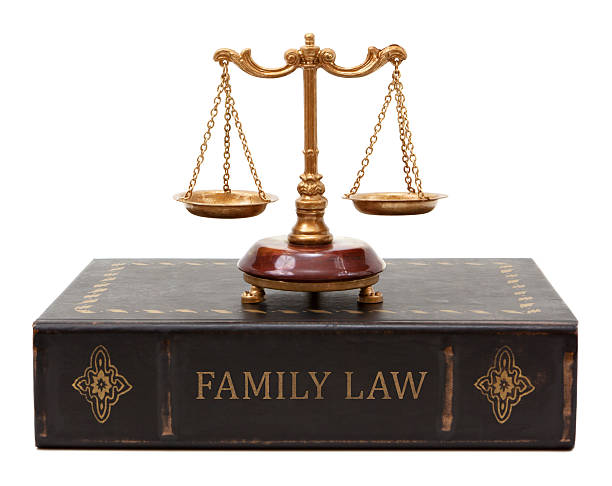This article will discuss the transmission of Australian orders to overseas jurisdictions under the Family Law Act 1975. Under this Act, there are several types of family law orders that parties may register overseas. Read on to learn what kind of orders are made in this article about the transmission of Australian orders to overseas jurisdictions.
Relevant Orders
Before we discuss the transmission of Australian orders to overseas jurisdictions, let’s look at the relevant orders mentioned in this article.
1. Parenting Order
Parenting orders can include a variety of provisions, such as:
- Who the child will live with and spend time with;
- When the child will spend time with each parent;
- How the child will communicate with each parent;
- How the child will travel between each parent’s residence;
- Who will be responsible for making major long-term decisions about the child’s upbringing, such as education and health care;
- Any restrictions on the child’s travel or relocation;
- Any orders for the payment of child support; and
- Other matters relevant to the child’s care, welfare, and development.
These are legally binding and enforceable orders, and failure to comply with a parenting order can result in penalties or legal consequences. It’s important to note that the court will always prioritise the best interests of the child when making parenting orders.
2. Child Maintenance/Support Order
A child maintenance/support order is a relevant order in the transmission of Australian orders to overseas jurisdictions. A child maintenance order typically requires a parent to make regular payments of financial support for the benefit of their children over 18.
On the other hand, child support orders are made for children under 18. This order helps cover the costs of the child’s daily living expenses, such as food, clothing, and housing. The amount of child support/maintenance payable is usually calculated by the Child Support Agency. The Agency takes into account a range of factors such as the:
- Income of each parent
- Number of children; and
- Percentage of care each parent provides.
Child maintenance orders can be made by agreement between the parents or by the court. This can also be enforced through a range of legal mechanisms if necessary, such as wage garnishment or legal action for non-payment.
3. State Child Order
A state child order is another court order in the transmission of Australian orders to overseas jurisdictions. This order is made under the law of a state in Australia that deals with parenting arrangements for children who are under 18. This type of order can determine:
- Who a child is supposed to live with
- Provide for custody of the child
- Allow for visitation or contact between the child and another person or persons, or grant access to the child.

Section 70M: Registry Manager to Send Documents Etc. to Overseas Jurisdiction
Section 70M of the transmission of Australian orders to overseas jurisdictions outlines the process for transmitting documents and information necessary for enforcing:
- a parenting order; or
- State child order made in Australia in an overseas jurisdiction or convention country.
This section applies if a parenting order or state child order made in Australia is enforceable in:
- Overseas jurisdictions; or
- Convention countries
Under the Family Law Act, a person with custody or access rights to a child, or a person with whom the child is supposed to live or spend time, may request the Registry Manager of the court to send the necessary:
- Documents; and
- Information to an appropriate court or authority in an overseas jurisdiction
Note: This request must be made in writing and the Registry manager must comply with it.
Section 70N: Regulations May Deal With Sending Australian Orders Etc. to Overseas Jurisdiction
Section 70N of the transmission of Australian orders to overseas jurisdictions refers to the ability for regulations to be made regarding the transmission of copies of parenting orders or state child orders to a prescribed overseas jurisdiction.
This applies specifically in relation to a child who is subject to an overseas child order. The regulations may also provide for the sending of copies of orders made under section 111B to a convention country (as defined in the regulations) in relation to a child who is subject to an overseas child order.
Important Tips
Here are some important tips to follow when approaching the transmission of Australian orders to overseas jurisdictions:
- Understand the relevant laws: You should have a good understanding of the laws and regulations that apply to the transmission of Australian orders to the overseas jurisdiction you wish to register the order in. This includes understanding the requirements and procedures for registration, as well as any limitations or exceptions that may apply.
- Gather all necessary documents: Ensure that you have all the necessary documents related to the Australian family law order. This may include the court order, any supporting documentation, and any translations required.
- Check the validity of the order: Before attempting to register the order overseas, you should ensure that the order is valid and enforceable under Australian law. This includes ensuring that the order has not been varied or revoked and that there are no outstanding appeals or challenges to the order.
- Be prepared for delays: The process of registering and enforcing an Australian family law order overseas can be time-consuming and may involve significant delays. It is important to be patient and prepared for any challenges that may arise during the process.
- Consider cultural differences: When dealing with overseas jurisdictions, it is important to be aware of and sensitive to any cultural differences that may exist. This may include differences in legal systems, social norms, and communication styles.
- Keep accurate records: Throughout the process of transmitting the Australian order overseas, it is important to keep accurate records of all communications, documents, and transactions. This can help to ensure that you can resolve any issues or disputes that may arise quickly and efficiently.

Importance of Seeking Legal Advice
We hope this article has helped you understand the sections relevant to the transmission of Australian orders to overseas jurisdictions. It’s important to seek legal advice to ensure compliance with the relevant laws and regulations. This includes understanding the requirements for registration of orders in the overseas jurisdiction and the necessary documents and information needed for transmission.
Therefore, it is advisable to seek the assistance of a reputable law firm such as JB Solicitors. We have experience dealing with family law matters, and we can provide tailored advice and guidance throughout the process. Our family lawyers can provide mediation and arbitration services and ensure that we protect the best interests of the child.
Contact us today if you need help with your family law matter.
